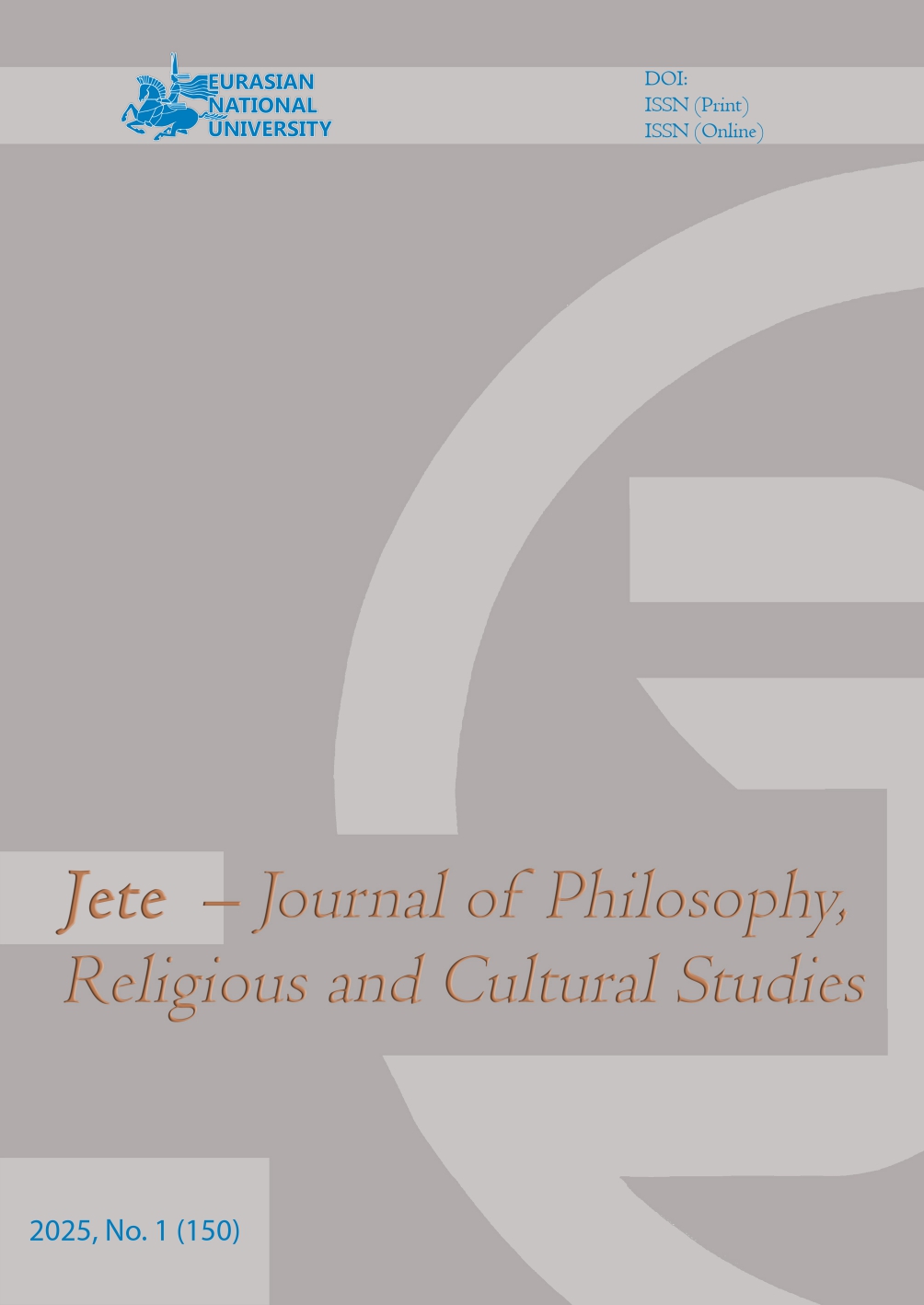Пояснение к религиоведческим концепциям М. Элиаде
Просмотры: 157 / Загрузок PDF: 72Ключевые слова:
время; символ; концепция; история религий; иерофания; сакраль-ное; архаическое; религиозное сознание.Аннотация
В статье рассматриваются основные религиоведческие концепции Мирчи
Элиаде, их роль и значение в современной науке. Исследования историка религий представляют
собой фундаментальные работы в области религиоведения, и их анализ позволяет подчеркнуть
актуальность его теоретических положений. Мы акцентируюм внимание читателя на
концепциях «сакрального и профанного», «иерофании», «архаи-ческого сознания», «мифа»,
«символа», «религиозного универсализма» и «времени», рассматривая их влияние на форми-
рование структуры религиозного сознания и предлагая их новую интерпретацию. Идеи Элиаде
раскрывают универсальные закономерности религиозного опыта и его воздействие на
культурные и духовные процессы. Он трактует религию не только как систему верований,
но и как особый способ познания мира. В статье определяется место его взглядов на мифы и
символы в религиозном мировоззрении и их роль в духовной жизни человека. Рассматривается
актуальность его теорий в современных религиоведческих исследованиях, анализируется
значимость мифов и символов для общества. В результате исследования представлена новая
оценка вклада Элиаде в феноменологию религии, а также обоснована значимость его концепций
для современных научных изысканий. Его идеи позволяют глубже понять роль религии в жизни
человека, а также функции мифов и ритуалов в общественных процессах.










